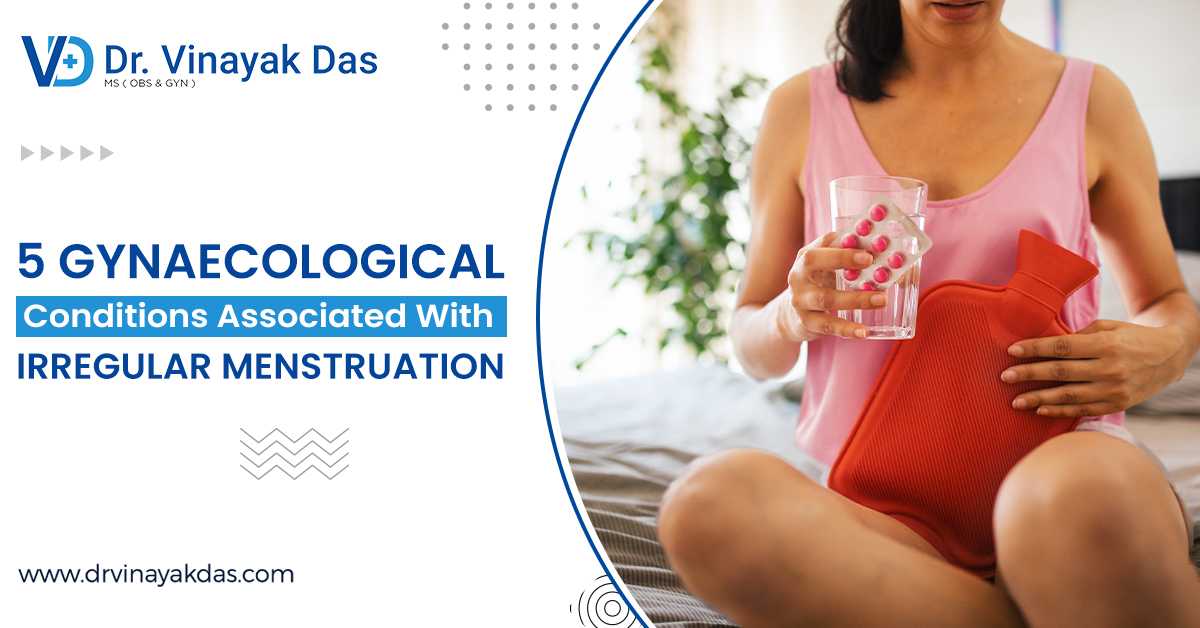Most of the women experience menstrual periods that last for 4-7 days after every 28 days of the month. If the menstrual cycle changes abnormally such as missed periods, heavy flow, and periods lasting longer than 7 days then it may indicate a serious gynaecological issue.
In some cases, the abnormalities in the menstrual cycle can also be experienced due to stress, intake of certain medications, and hormonal imbalances. If these menstrual issues are not resolving after long then it is always recommended to book an appointment with the best gynaecologist in Siliguri.
Given below are some of the common gynaecological disorders that can lead to irregular menstruation.
1. PCOS
PCOS or Polycystic ovary syndrome is a hormone-related issue where numerous small sacs or cysts develop in the ovaries. In this condition, the ovaries also start producing huge amounts of androgen that may cause delayed ovulation and irregular periods.
Without proper treatment, this disorder can also lead to anovulation and infertility. Some of the other symptoms that you may experience if you suffer from PCOS are weight gain, excessive body hair, and large size of the ovaries.
2. Endometriosis
Another major cause of irregular periods is endometriosis which leads to the growth of endometrial tissues in the fallopian tubes, ovaries, and pelvic region. The main symptoms of this gynaecological issue are missed periods and severe cramping before and after it.
Women with endometriosis can also experience sudden bleeding after periods or spotting. You can visit the best gynaecologist hospital in Siliguri to receive proper treatment for the disorder and control the distressing symptoms such as heavy periods, pelvic pain, and infertility.
3. Pelvic Inflammatory Disease
Pelvic Inflammatory Disease or PID is a bacterial infection that can severely impact the female reproductive organs. It is often caused due to a sexually transmitted disease which has reached the fallopian tubes, uterus, and ovaries.
If this disorder is left untreated then it can lead to the development of abscesses and scar tissue which can cause permanent damage to the organs and irregular periods. Heavy vaginal discharge and severe pelvic pain are some of the other symptoms associated with it.
4. Uterine Cancer
Uterine cancer including uterine sarcoma and endometrial cancer can be one of the main causes of irregular periods. It can often lead to abnormal bleeding even after reaching the menopausal stage.
Some of the other symptoms due to it are lower abdominal pain, spotting after menopause, postmenopausal vaginal discharge, and prolonged periods after reaching 40. The risk factors that can enhance the probability of developing this disorder include obesity, hormonal imbalance, family history, and PCOS.
5. Blocked Fallopian Tubes
Fibroids, abdominal surgery, PID, endometriosis, and a history of ectopic pregnancy can cause blockage in the fallopian tubes. This blockage disrupts the transportation of the eggs to the uterus and ovaries, which can lead to an irregular menstrual cycle. Infertility, pain during intercourse, and pelvic pain are the other symptoms of this issue.
To understand the main cause of irregular periods, you must contact the best gynae doctor in Siliguri who will diagnose the condition through pelvic ultrasound, hysteroscopy, or endometrial biopsy. Based on the result and cause of the issue, the doctor will recommend an effective surgical procedure or medication.




